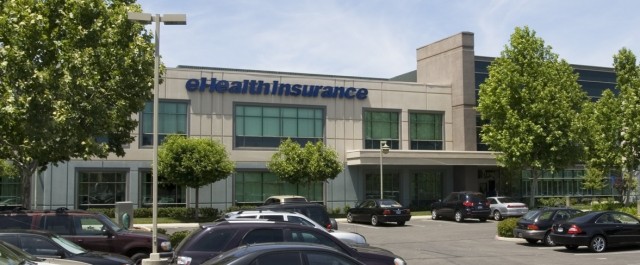But Lauer is not threatened by these big new competitors. Instead, he sees himself in partnership with government efforts to move the uninsured under the umbrella of coverage. He already has experience in reaching the uninsured. He says that "40 percent of the people we've gotten covered are previously uninsured."
A recent Gallup Poll showed that nearly two in three uninsured Americans — about 32 million people — planned to buy health insurance as a result of the Affordable Care Act. Lauer likely has a lot more customers coming his way, since eHealth operates in all 50 states.
But in California, many of those potential customers won't have access to his service. At issue is the "subsidy-eligible population" — people whose incomes fall below 400 percent of poverty and are eligible for premium support from the federal government. For those people to access the subsidy, they must buy insurance on the Covered California marketplace. They cannot get the subsidy if they buy on eHealthInsurance.com. And Lauer doesn't like it.
"For Obamacare to succeed, you've got to have a lot of people enrolled in the pool, and when you have more ladders into the pool," he said, referring to more options to sign up for insurance, "it's sensible that you're going to end up with more people in the pool."
Californians above the subsidy threshold are not restricted to Covered California. They may buy on eHealthInsurance.com through a broker or even directly from a plan, if they like.
The federal government is setting up marketplaces in the 34 states that have refused to set up exchanges on their own. EHealth recently signed a deal with the federal government to allow everyone in these states — including subsidy-eligible people — to use eHealth to enroll.
Lauer found it ironic that in the states that are "defiant about Obamacare, (that) lower income residents in these Republican states may have more enrollment options than states like California." Lauer says he's "frankly constructively very critical of the California exchange for not doing this."
Dana Howard, a spokesman for Covered California, said that other vendors are certainly welcome to sell Covered California plans outside the exchange, but right now "we do not have the capability to allow and authorize others outside of Covered California to offer the insurance plans for subsidy-eligible individuals." Howard did say it was "something we are looking at," but did not provide a time frame.
Lauer says he's mystified by the state's stance. "It just makes sense that if you take someone as large as us, a California, Silicon Valley born-and-bred company doing this, while the exchange is enrolling people as well, we're going to get more lower income Californians enrolled," he said.
EHealth has experience reaching lower income populations, Lauer said, through "media work, outreach online ... and a lot of partnerships." He says his company has just signed a partnership with Solo Health, which runs medical kiosks in WalMart stores.
"You've got to be assertive and you're got to be creative," Lauer said. "I think Covered California will do good work getting to these people, but they won't get to all of them — we won't as well. [But] put us both together, the sum of that is going to be many more people getting coverage."
